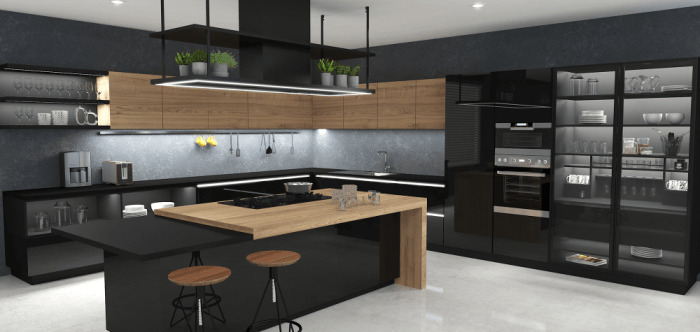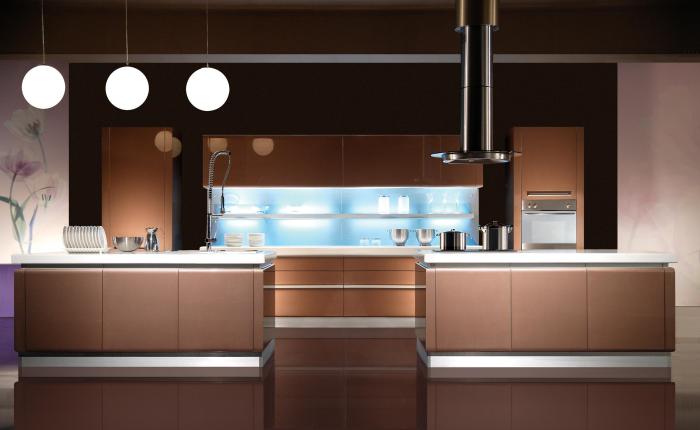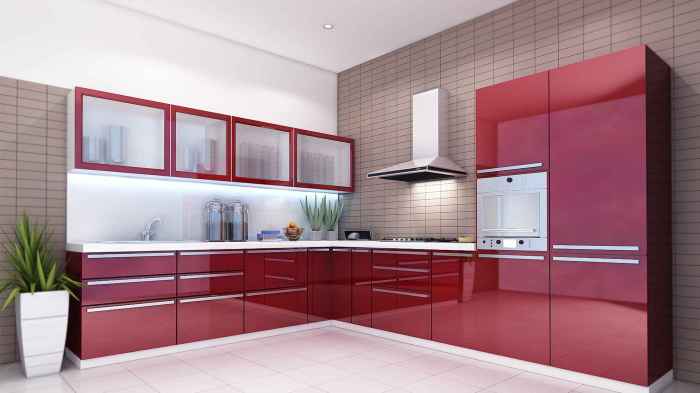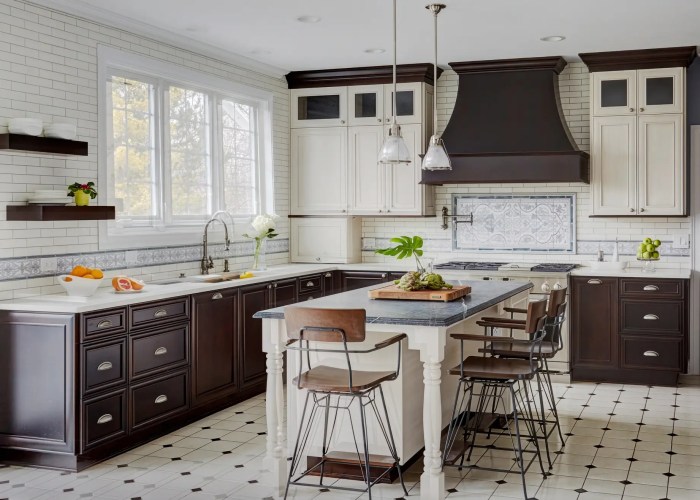Sustainable and Eco-Friendly Modular Kitchen Design Tips – Discover the secrets of sustainable and eco-friendly modular kitchen design. This guide will provide you with practical tips and inspiration to create a kitchen that is not only stylish but also environmentally conscious.
Incorporating sustainable materials, energy-efficient appliances, and waste reduction strategies into your kitchen design can significantly reduce your environmental impact. Additionally, modular design offers flexibility and adaptability, allowing you to create a kitchen that meets your evolving needs while minimizing waste.
Sustainable Material Selection
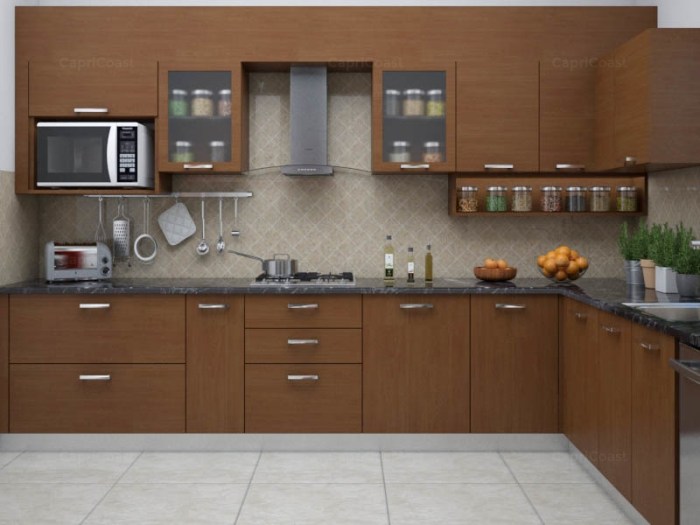
Incorporating sustainable materials into your modular kitchen design is crucial for minimizing environmental impact and promoting eco-consciousness. These materials offer numerous benefits, including reduced carbon footprint, conservation of natural resources, and improved indoor air quality.
When selecting sustainable materials for your kitchen, consider options such as bamboo, recycled wood, and low-VOC finishes. Bamboo is a rapidly renewable resource that boasts exceptional durability and resistance to moisture. Recycled wood utilizes discarded wood products, reducing waste and conserving forests.
Low-VOC (Volatile Organic Compound) finishes minimize the release of harmful chemicals into the air, creating a healthier indoor environment.
Durability and Longevity
Sustainable materials are not only eco-friendly but also highly durable and long-lasting. Bamboo, for instance, is harder than oak and less prone to warping or cracking. Recycled wood, when properly treated, can withstand moisture and wear, ensuring longevity. Low-VOC finishes, by reducing chemical emissions, help preserve the integrity of kitchen surfaces and appliances.
Energy-Efficient Appliances
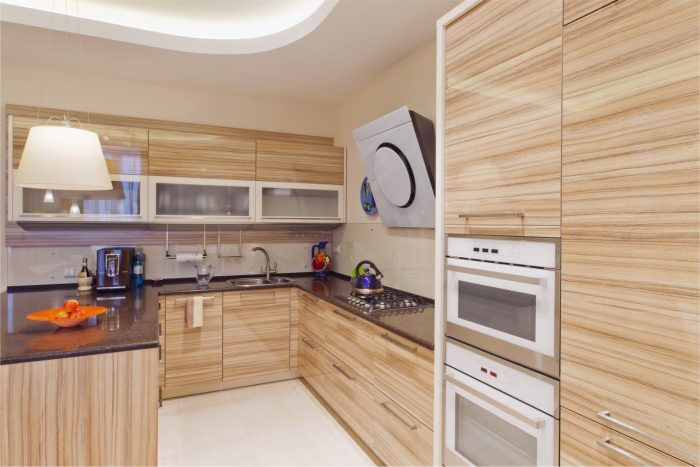
Adopting energy-efficient appliances in a modular kitchen is crucial for minimizing carbon footprint and promoting sustainability. These appliances consume less energy and water, leading to significant financial savings and environmental benefits.
Selecting Appliances with High Energy Ratings
When choosing appliances, look for those with high energy ratings. Energy ratings are typically displayed on labels and indicate the appliance’s energy consumption efficiency. The higher the rating, the more energy-efficient the appliance. Opt for appliances with Energy Star or similar certifications, which guarantee compliance with energy-saving standards.
Investing in Water-Saving Features
Incorporating water-saving features in appliances can further reduce water consumption. Look for dishwashers with water-saving cycles and faucets with aerators. These features help conserve water without compromising cleaning performance.
Financial and Environmental Benefits
Investing in energy-efficient appliances not only benefits the environment but also provides financial savings. Energy-efficient appliances consume less energy, leading to lower utility bills. Additionally, they have longer lifespans, reducing replacement costs and contributing to a more sustainable lifestyle.
Waste Reduction Strategies
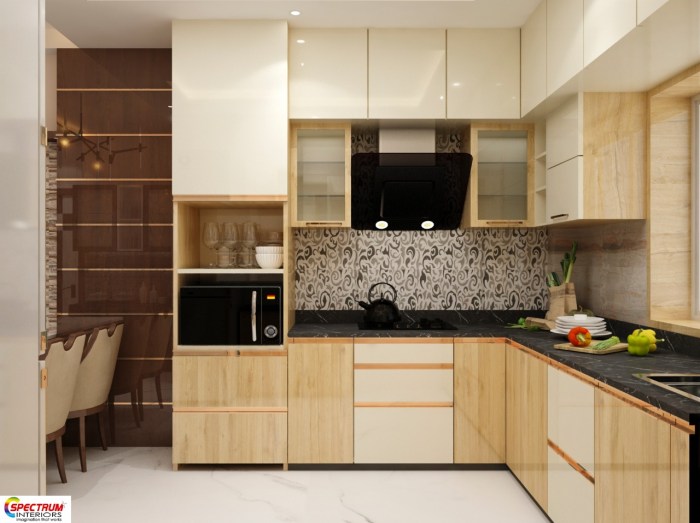
Sustainable kitchen design goes beyond material selection and energy efficiency. It also encompasses waste reduction strategies that minimize the environmental impact throughout the design, construction, and use of the kitchen.
Composting and Recycling
Composting organic waste, such as food scraps and yard trimmings, reduces the amount of garbage sent to landfills and creates a valuable soil amendment. Recycling programs divert recyclable materials, such as paper, plastic, and metal, from landfills, conserving resources and reducing pollution.
Use of Biodegradable Materials
Choosing biodegradable materials, such as bamboo countertops, cork flooring, and natural fiber textiles, helps minimize the environmental impact of the kitchen. These materials decompose naturally, reducing the amount of waste that ends up in landfills.
Waste Reduction Benefits
Waste reduction practices in kitchen design contribute to a sustainable lifestyle by:
- Reducing the amount of waste sent to landfills
- Conserving natural resources
- Reducing greenhouse gas emissions
- Protecting ecosystems
- Promoting a healthier environment
Natural Lighting and Ventilation: Sustainable And Eco-Friendly Modular Kitchen Design Tips
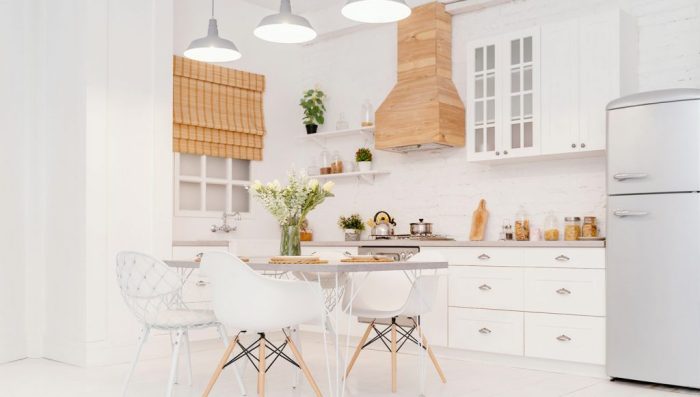
Harnessing natural lighting and ventilation is a crucial aspect of eco-friendly modular kitchen design. These elements not only reduce energy consumption but also enhance indoor air quality, creating a healthier and more sustainable cooking environment.Incorporating large windows or skylights allows ample natural light to flood the kitchen, reducing the need for artificial lighting during daytime.
This significantly lowers energy usage, especially in kitchens with extended usage hours. Natural light also provides a sense of spaciousness and improves the overall ambiance of the space.Adequate ventilation is equally important. By integrating cross-ventilation systems or installing range hoods, stale air and cooking odors can be effectively removed, ensuring a fresh and comfortable cooking environment.
Proper ventilation also helps regulate indoor humidity levels, preventing condensation and the growth of mold and mildew.Some innovative design solutions for maximizing natural lighting and ventilation include:
- Skylights and Clerestory Windows:These overhead openings allow natural light to penetrate deep into the kitchen, even in areas with limited wall space.
- Bifold or Sliding Doors:These can be opened up to connect the kitchen with outdoor spaces, providing ample ventilation and a seamless indoor-outdoor flow.
- Ventilation Hoods with External Venting:These efficiently remove cooking odors and fumes directly outside, ensuring a clean and healthy indoor environment.
Modular Design for Flexibility and Sustainability
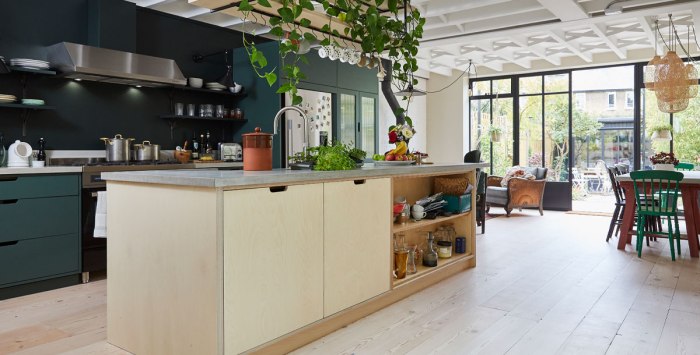
Modular kitchen design is an innovative approach that emphasizes flexibility, sustainability, and adaptability. By incorporating modular elements into your kitchen, you can create a space that not only meets your current needs but also has the potential to evolve as your lifestyle changes.
One of the key advantages of modular kitchen design is its ability to reduce waste and conserve resources. Modular components are typically pre-fabricated, which minimizes the amount of on-site construction and waste. Additionally, modular kitchens are designed to be easily reconfigured, allowing you to adapt your kitchen to changing needs without the need for major renovations.
Adaptability and Reconfiguration, Sustainable and Eco-Friendly Modular Kitchen Design Tips
Modular kitchen design offers unparalleled flexibility, allowing you to reconfigure your kitchen layout as your needs change. This is especially beneficial for homeowners who anticipate changes in their lifestyle, such as expanding their family or downsizing in the future.
With modular kitchens, you can easily add or remove cabinets, drawers, and other components to create a layout that perfectly suits your space and needs. This adaptability ensures that your kitchen remains functional and efficient, regardless of life’s changes.
Long-Term Sustainability
The long-term sustainability of modular kitchen design lies in its ability to reduce waste and conserve resources. By using pre-fabricated components, modular kitchens minimize the amount of on-site construction and waste. Additionally, the flexibility of modular design allows you to reconfigure your kitchen without the need for major renovations, further reducing waste and resource consumption.
By investing in a modular kitchen, you are not only creating a space that meets your current needs but also one that can be easily adapted and reconfigured as your lifestyle evolves. This sustainable approach ensures that your kitchen remains functional and efficient for years to come, reducing the need for costly renovations and minimizing your environmental impact.
Wrap-Up
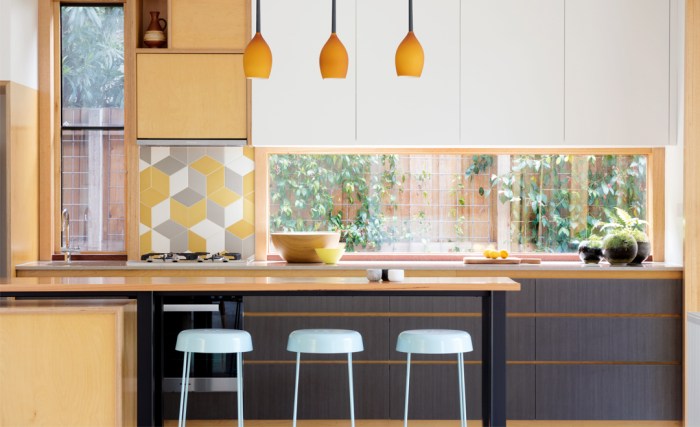
By embracing these principles, you can create a kitchen that is not only beautiful but also sustainable, reducing your carbon footprint and promoting a healthier lifestyle. Remember, every small step towards sustainability makes a difference. Let’s work together to create kitchens that are both stylish and eco-friendly, contributing to a greener future.
User Queries
What are the benefits of using sustainable materials in kitchen design?
Sustainable materials, such as bamboo, recycled wood, and low-VOC finishes, have a lower environmental impact compared to traditional materials. They are often more durable and can contribute to a healthier indoor environment.
How can I reduce waste during kitchen design and construction?
Consider composting organic waste, recycling materials, and using biodegradable materials. By reducing waste, you can minimize your environmental impact and promote a more sustainable lifestyle.
What are the advantages of modular kitchen design?
Modular kitchen design offers flexibility and adaptability, allowing you to create a kitchen that meets your specific needs. It also minimizes waste and promotes resource conservation, making it a more sustainable option.
